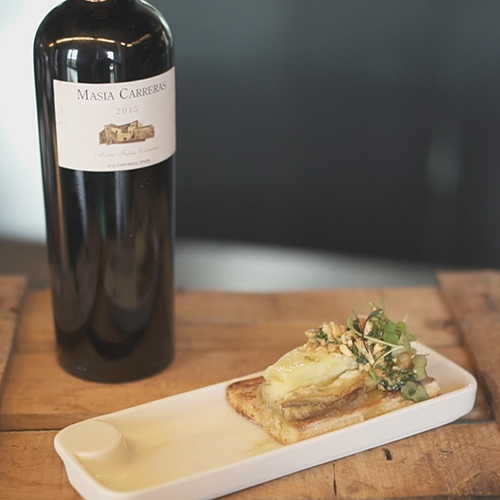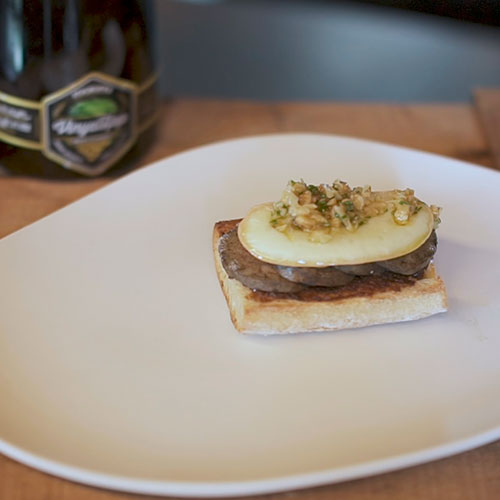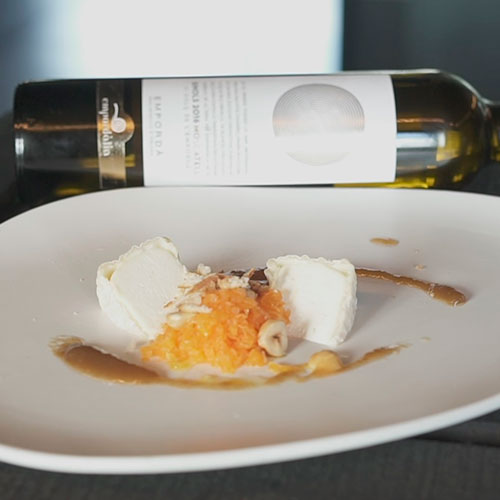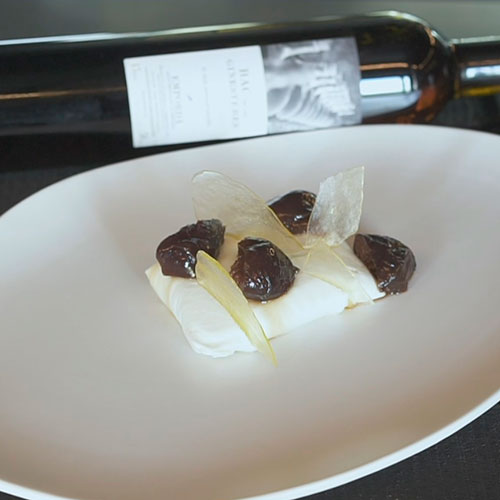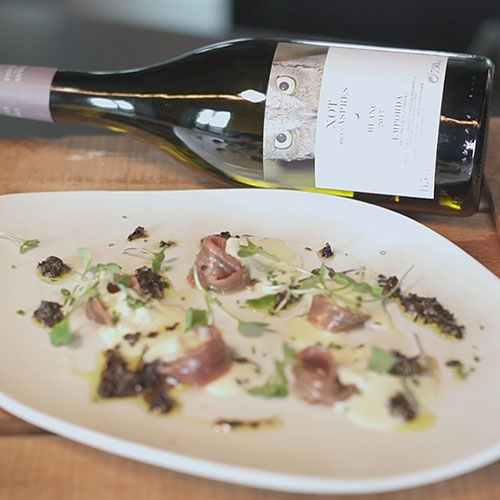
Herds of cows, sheep and goats have been common among the Gerona region landscapes. Some are nomads, looking for the best pastures in the Pyrenees in summer and the best weather on the plains in winter. Cattle has been nomad for many centuries. Herds of goats were more stable. These were mixed production flocks: milk, meat, wool, and leather for tanning.
Cottage cheese and mild cheeses were typical dairy products of the 20th century. Matured cheese was mostly made in mountain areas, as a result of transport and conservation needs. Paradoxically, ledgers and recipe books from up to the 19th century often refer to the use of mature and aged cheeses in kitchens and at the table. Fortunately, from the end of the 20th century the production of matured cheeses was recovered, a fact that has had an incredibly positive impact on the environment and the recovery of the rural economy. Today there are a number of cheese-making farmers of different types, but also many direct collaborations between small independent farmers and cheese artisans. Some have recovered the artichoke thistle farming to curdle the cheese and, above all, to make the cloth-method cottage cheese in the Baix Empordà region or the olleta method cheese from the Alt Empordà region, which is the most traditional and popular dairy product. Small farmers have focused on a more sustainable diet and general production, resulting in very high-quality milk.
Dairy products with the 2020-2021 Girona Excel·lent seal
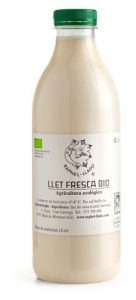
Organic Fresh Milk
The family farm Raphel Lladó was born in 1994, when Tomàs Grau Sastre and Roser Jiménez settled in the neighbourhood of Bruguers, in Maià de Montcal, with the will to live in balance with the environment and become a model of sustainability, with 11 cows and 3 calves, grazing daily on the 26.6 hectares of crops and meadows of a farmhouse that also has 8 hectares of holm oak and oak forest and 3 hectares of riverside trees, next to the Fluvià river. So that this extraordinary milk does not lose any organic or nutritional properties, it is pasteurized at 63º C in a bain-marie for half an hour.
Company: Raphel Lladó

Organic fresh sheep’s milk
The sixth generation of a family of shepherds from Siurana d’Empordà produces this intense sheep’s milk from the Ripollesa breed, fed and raised with criteria of organic agriculture and livestock. At Mas Marcè they opted for this autochthonous sheep, which is characterised by being a breed with little production, but of extremely high quality.
Company: Recuits de l’Empordà, SL
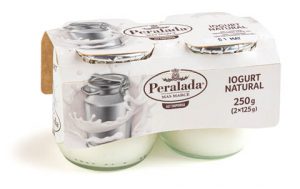
Natural cow’s milk yoghurt
Mas Marcè buys fresh cow’s milk from the farms La Lletera de l’Empordà to make its yoghurt. After coagulating the milk by lactic fermentation using Lactobacillus delbrueckii bulgaricus and Streptococcus thermophilus, the yoghurt is whipped to give it a gourmand creamy texture.
Company: Recuits de l’Empordà, SL

Cloth-method cottage cheese
The Fonteta cottage cheese was first made in 1990 when the Martell family decided to recover the old tradition of making cottage cheese with a cloth, which today is very typical of the Baix Empordà and Gavarres regions. They were traditionally wrapped in reusable yarn cloths, but, for food safety reasons, they were replaced by cellulose cloths. The company’s best cottage cheese is made with goat’s milk, with love and elegance.
Company: Recuits de Fonteta, SL
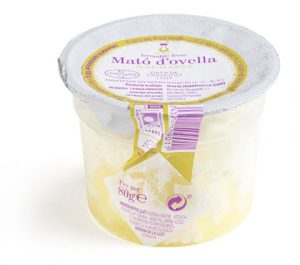
Sheep cottage cheese
Mató is the country’s most popular fresh cheese. At Mas Marcè they make it with organic sheep’s milk from their Ripollesa breed herds, and curdled with cardoon, the traditional coagulant. In the same way as this farmhouse in Siurana d’Empordà recovered the Ripollesa breed, they have also recovered the cardoon. Its cottage cheese is a bright white colour and has an intense fresh milk flavour. To better appreciate it, it should be eaten alone or with sugar.
Company: Recuits de l’Empordà, SL
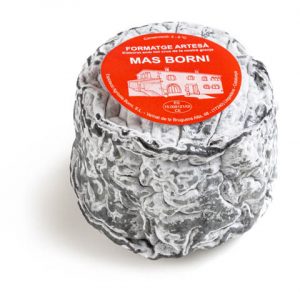
Tap de la Bruguera
The Mas Borni farm, located in the Pla de la Bruguera in Llagostera for several generations, makes its cheese with the milk of a herd of 60 cows, fed with fodder grown in its fields and in the neighbouring town of Tossa de Mar. Tap de la Bruguera is a soft cheese with a bloomy rind, covered with vegetable ashes, made with raw milk, with a sweet and buttery taste, hints of mushrooms and spicy at the end of its ripening.
Company: Explotació Agrícola Borni, SL
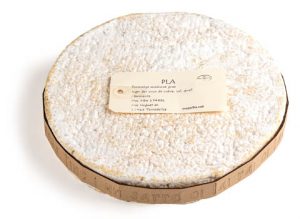
Pla d’Alba
Mas Alba is an agriculture family business, with 100 hectares of forest, crops and livestock, with a herd of 300 goats that provide milk for their dairy products. Pla d’Alba is a soft raw goat’s milk cheese, with an ivory colour bloomy rind, an aroma of fresh mushrooms and buttery to the taste. Although this cheese is actually flat, Martí Huguet named it after Albert Pla.
Company: Mas Alba

Saüll
La Xiquella makes this hard-pressed cooked cheese with raw cow’s milk from the Bruna breed herd. The rind is washed, and the cheese is matured for at least one year. In 2014 Oriol Rizo and Irma Casas settled at Mas El Xiquillo from the neighbouring town of Vilallonga, at the Vall d’en Bas, where they opened a rural tourism house and founded the artisan cheese factory La Xiquella.
Company: La Xiquella Formatges i Turisme Rural, SLU

Babaus
Mas Alba is a farmhouse dating back to the 18th century, located in Terradelles, in the town of Vilademuls, at Pla de l’Estany. It is well connected and near to both the sea and the mountains. Babaus is a raw goat’s milk cheese, with a firm consistency, a bloomy rind and is matured for three months. As a result of reusing of the curd from the production of other cheeses at the Mas, it is made at a higher temperature and has a very mild and pleasant taste.
Company: Mas Alba
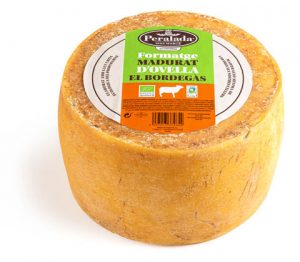
Bordegàs
Peralada Mas Marcè makes this shepherd’s cheese matured from organic raw milk from its herd of “La Cauna” sheep. Serrat is the traditional matured cheese that shepherds make during their stay in the pastures of the Pyrenees mountains, during spring and summer. The Bordegàs three-kilo cheeses mature for a minimum of four months.
Company: Recuits de l’Empordà, SL
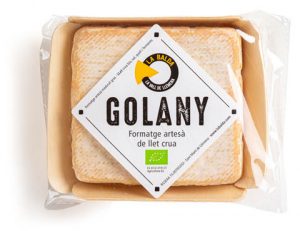
Golany
La Balda is a cheese factory founded in 2012 at Mas Vilotxa, in Granollers de Rocacorba, in the Vall del Llémena. With organic certification, it makes artisan cheeses with raw milk from nearby farms. Golany is a soft, deliciously creamy cheese made from raw cow’s milk, with a mixed, bloomy and washed rind, which matures for three weeks in a cellar.
Company: Pablo Garcia Garcia
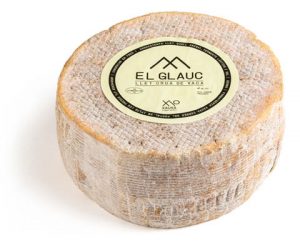
El Glauc
Paula Fonollà Araujo and Albert Grabulosa Reixach founded the Xauxa Cheese Factory in Les Preses in 2018, where they make raw cow’s milk cheeses from organic livestock from Can Frigola del Bosc, Borgony, in Pla de l’ Estany. El Glauc is a soft blue cheese with a buttery texture, an intense and elegant taste, and slightly salty. The pieces, weighing 3.5 kilos, are left to mature for four months.
Company: Paula Fonollà Araujo
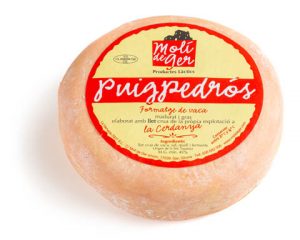
Puigpedrós
El Molí de Ger is a farmhouse located at an altitude of 1,135 metres, in the sunny part of La Cerdanya, dedicated since 2007 to making artisan cheeses with raw cow’s milk from its Frisona breed herd crossed with the Belgian white-blue breed. It is a soft cheese with a washed rind, orange on the outside and aged ivory on the inside. The Puigpedrós is one of its most celebrated cheeses.
Company: La Verneda 2007, SL
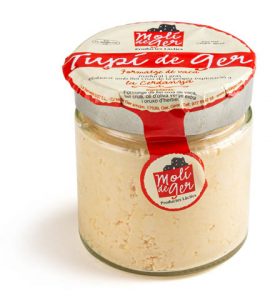
Tupí de Ger
Tupí is the typical Pyrenean cheese, invented by shepherds to promote matured cheeses. Today, it is made from fresh cheese curd and fermented with wine, liqueur or sprit in a traditional pottery container, the “tupí”. El Molí de Ger uses a herb pomace, which adds aromas to the “tupí” and enhances the spicy taste of the cheese.
Company: La Verneda 2007, SL
El jurat del
tast de làctics.

Laia Pont
Enginyera tècnica agrícola Especialista en indústries alimentàries i formatges
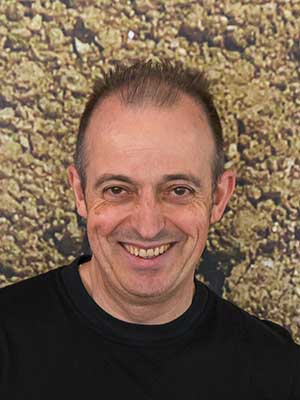
Toni Gerez
Sommelier del restaurant Castell de Peralada
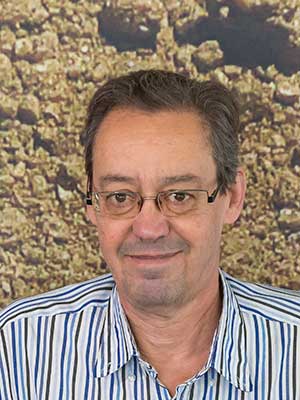
Artur Sagués
Cap de sala del restaurant Cap i Pota, de Figueres
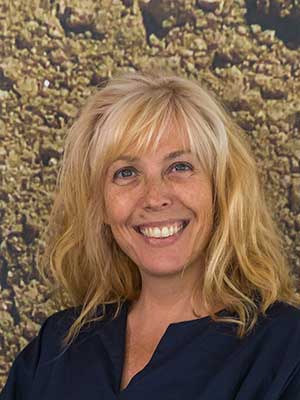
Carme Gasull
Periodista, escriptora i comunicadora gastronòmica

Marta Garrón
Investigadora de l’IRTA (Institut de Recerca i Tecnologia Alimentàries)
